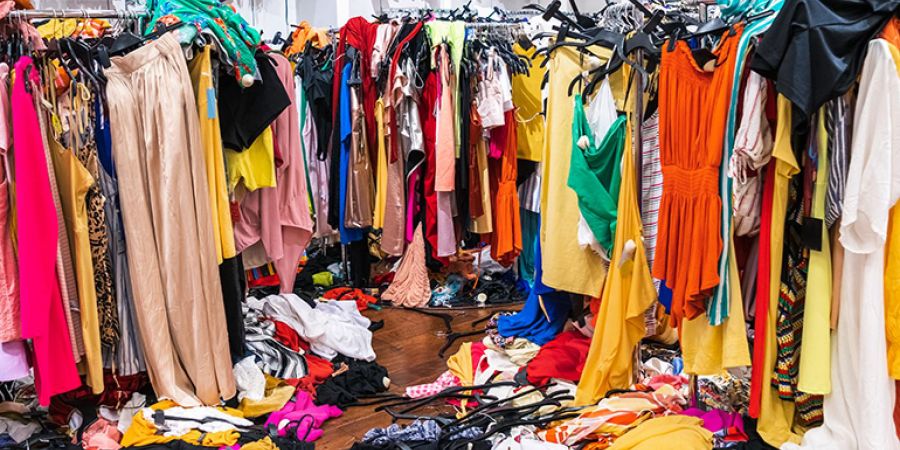

How many clothes do you buy in a year?? yea I know no one wants to say. But if we go to see the data' it's a lot, lot as in 3.5 million lot. This number of clothes were bought by people in only 4 days of sale from MYNTRA. We love buying clothes, but have you ever thought what will happen if all of us don't buy clothes for a year???Don't know about the economy, but there will surely have a surprising effect on the oceans. What effect? How? and Why should we not buy much clothes???
Shopping has never been easier, just click on by now and get the message ‘your order has been shipped' after that every door bell sound make's you excited. Opening the package is a different level of bliss. We can't stop ourself from buying new clothes even if we want too. We are like oh forever 21 got this top at this price let me add to cart right now, but wait, before doing it have you ever thought why is it so cheap. Adding the cost from all stages from design to adds still it's so cheap. How are they selling tops at 399 and all how is it affordable for them? If you read some articles there is a point mentioned about cheap labour in developing countries. There is a point which isn't mentioned anywhere, that is the material of the top you have ordered. The relation between this material and the ocean is a bit different. If you check the tag of these tops only some have cotton or shiponsilk most of them will have polyester material. Polyester is strong, polyester is flexible, polyester is water resistant and its cheap. 60% of the clothes made in world are made out of this material. The cloth used in fast fashion is polyester or polyester + some other synthetic fiber's blend. BUT WHAT'S THE PROBLEM???
Problem isn't the cloth, the problem is in the food, the fish on your plate, that isn't a fish it's a plastic. From when the number increased of polyester in clothes from then plastic has increased in our food. Yes it isn't rubbish! really. How, let me explain.

This this phytoplankton, found in ocean, it has a green glowing region on it's body that's nothing but plastic, microplastic. Ocean has zooplankton which eat these phytoplankton which is then eaten by a small fish which then by a bigger one which then we have, this is how the plastic goes into us. How did this microplastic reach our ocean???
Through our new friend POLYESTER. When we clean our clothes have you noticed some lint, on cotton clothes too. But cotton is natural, it's bio degradable so there isn't any issue with cotton, polyester is synthetic. Polyester actually is plastic only, the lint it forms is also a form of plastic which is non-bio degradable. when we wash these clothes it goes into the drain, then sewage treatment plant and eventually into oceans. 35% of the plastic in the ocean is actually from our textile industry, that is from this lint. It's assumed that around the middle of the century, in our oceans there will be more plastic then fishes. In China where there are most clothes formed there is a saying, if you want to know the next season fashion color, so have a look at the rivers in China. Aviation and shipping industries combined pollution is less than the pollution by textile industry. Also there is a reason behind it, see the companies sells these tops at cheap price and to earn profit they obviously have to sell a huge number of them, to earn it. That's why they change the clothes every season. Fall fashion, Winter fashion, whatever that is, therefore the people buy more clothes. Buying them isn't the need of people but because of these sales and change in trends, use the influences, for us to feel the need of them, that's why more people are buying clothes on repeat. So what's the solution??
To buy cotton instead of polyester, no you can't do that either cause you know one cotton sweatshirt requires how much amount of water to be made?? 2700L!!! yes I am not lying you can search up . So much water is required to form one sweatshirt. So can't buy cotton shouldn't buy polyesters, the solution is don't buy much clothes.
FOLLOW FOR FOLLOW BACK, LIKE N COMMENT DOWN TOO. HELP EACH OTHER TO GROW.




